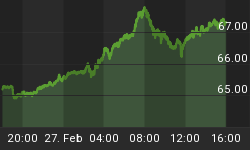As Greece wonders whether its debt crisis will eventually spell its exit from the euro, one town, Volos, has formed an alternative local currency as noted by the BBC in Greece Bartering System Popular in Volos.
A few months ago, an alternative currency was introduced in the Greek port city of Volos. It was a grass-roots initiative that has since grown into a network of more than 800 members, in a community struggling to afford items in euros during a deepening financial crisis.
From jewellery to food, electrical parts to clothes, everything here is on sale through a local alternative currency called TEM.
It works as an exchange system. If you have goods or services to offer, you gain credit, with one euro equivalent to one TEM.
You can then use your "savings" to buy whatever else is being offered through the network, leading to some rather original exchanges of goods.
It's all reminiscent of an ancient bartering system returning to today's Greece.
"I can get language classes or computer lessons in return", says Stavros Ntentos from his stall where he sells children's underwear.
"It's a very good idea because we need to make people realise we can all buy and sell something; we don't only need euros."
"We can buy bread or meat in exchange for our products, or the girls can go to the hairdresser," says Peri Mantzafleri, who runs the co-operative.
"I grew up in a village - this was how it used to work in the old days, before money became involved. So this could be a chance to start again."
"Spain Would Be Dead Without ECB Loans"
Articles that appear in this blog translated from Spanish frequently appear in one of the major English news outlets a day or two later.
And so it is again.
As a followup to my post Black Market in Spain: Cash Transactions Exceeding 2,500 Euros Now Banned The New York Times reports Spain Targets Tax Fraud To Counter a Recession.
The Spanish government approved a number of measures on Friday to crack down on tax fraud as part of its efforts to reassure investors that Madrid can replenish the public coffers by bringing to the surface some of the country's hidden wealth.
Jaime García-Legaz, the Spanish secretary of state for the economy, told the Spanish television channel laSexta on Friday that Spain "would be dead" without the loans provided by the European Central Bank.
To counter a deepening recession -- the second in three years -- the government of Prime Minister Mariano Rajoy is hoping to bring out some of the revenue buried in an underground economy that was estimated by the previous government to represent about 20 percent of gross domestic product.
The efforts to combat fraud come on top of a squeeze of 27 billion euros, or $35 billion, in the central government's budget this year, as well as regulatory changes in labor markets and other areas.
As part of the measures approved at a cabinet meeting Friday, corporate cash transactions will be limited to 2,500 euros ($3,300), with fines as high as 25 percent of the transaction's value levied upon any transfers above the limit. Individuals and companies will also face sanctions beginning next year for failing to declare all assets held overseas.
Use of 500 euro notes, worth about $657, is thought to have expanded considerably during Spain's construction boom as a way of paying for large -- and sometimes undeclared -- property transactions or building materials. Spaniards came to call the 500 euro notes "bin Ladens": everywhere and yet never seen.
Cayo Lara Moya, leader of the United Left party in Spain, argued during a parliamentary session this week that the government should push for the complete removal from the euro zone of 500 euro notes, one of the largest denominations used in Western economies.
Banning "bin Ladens"Cannot Possibly Work
The idea that banning 500 euro notes "bin Ladens" would accomplish anything is ludicrous. Moreover, as bad a the fraud is now, it is 100% guaranteed to get worse.
Unemployment is on the rise, and Spain is about to hike the VAT. With every tax hike comes more resistance to pay taxes. Spain is imploding and these measures will just make things worse. Please see Massive Jump in Bank of Spain Borrowing from ECB: Bank of Spain Balance Sheet Shows Spain Deep in Trouble, LTRO is Essentially Useless for more details.
Get Money Out of Banks Now!
My advice to everyone in Spain: Take your money out of the banks while you still can. Capital controls are just around the corner.















